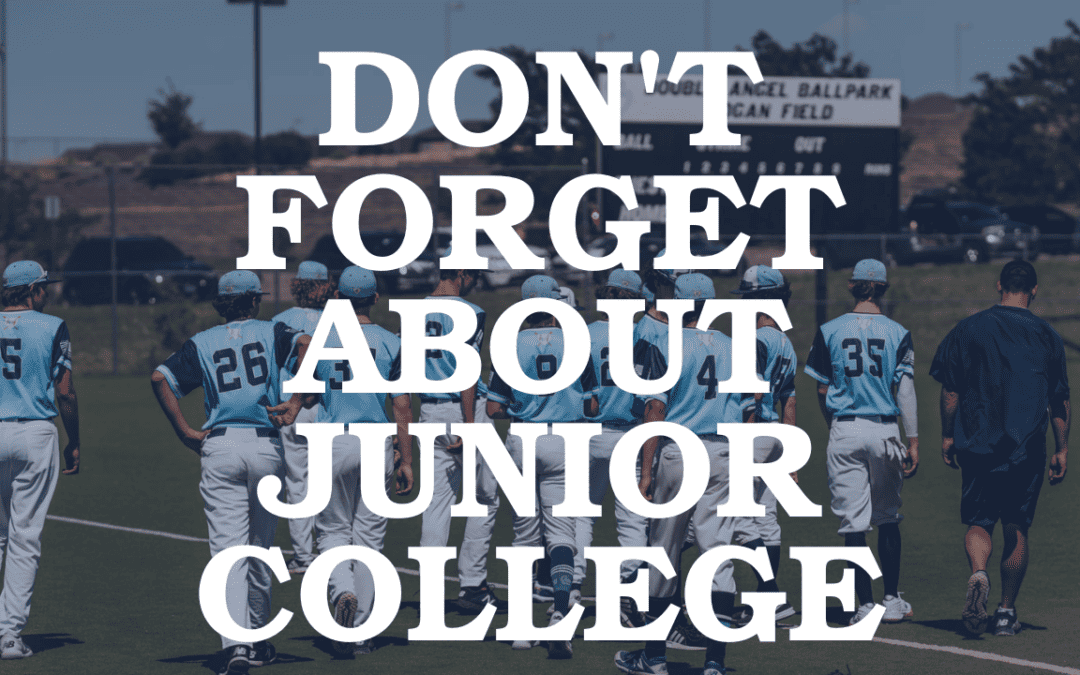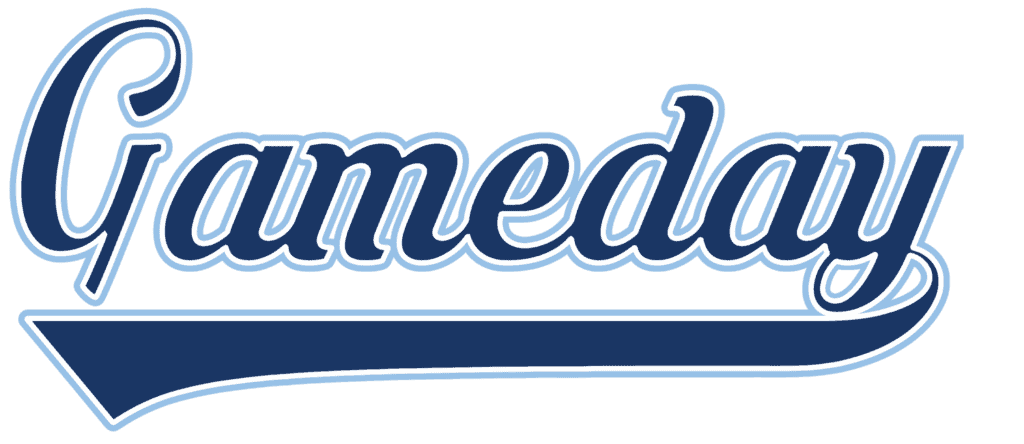There’s a saying that we hear that says “If a player wants to play baseball in college, there is a place for him, but it all depends on what they are willing to sacrifice”. There are around 300 D1 baseball programs in the United States. Division I programs have the most resources and are typically the most competitive. These programs are allowed to offer athletic scholarships to players. Division II has around 200 programs and Division III has around 400 programs. Division II programs have fewer resources than Division I programs but more than Division III. Division III programs do not offer athletic scholarships, and the focus is on academics and balance between athletics and student life. The National Association of Intercollegiate Athletics (NAIA) is another organization that oversees college athletics in the United States, and it also has a baseball division. The exact number of NAIA baseball programs can vary from year to year, but there were around 200 NAIA baseball programs in the United States. Lastly, there are 500 Community Colleges (or Junior Colleges) that offer a baseball program. In total, there are around 1,600 colleges that have an organized baseball program post-high school. Where you’re chosen to play or where you chose to play is up to you on many levels.
For many baseball players in the State of Colorado, or any State for that matter, there is a real opportunity that exists to continue your playing career after high school. This blog examines the pros and cons of doing so as well as a current market analysis. For years there has been a negative stigma about playing at a Community College (Junior College) and we will explain some of the issues in this Blog. However, upon current examination and evaluation of the opportunity for players to continue to play baseball past high school, playing at a community college has a ton going for it.
To begin, there seem to be several benefits to playing community college baseball, including:
-
Lower costs: Community college tuition is typically much less expensive than four-year universities, making it a more affordable option for student-athletes.
-
Opportunity to improve: Community college baseball teams often have a strong focus on player development, giving players the opportunity to improve their skills and increase their chances of transferring to a four-year university. Make no mistake, the baseball programs at Community Colleges are tough/demanding and require several hours practicing every day. Most players will get better through this system. *Noted below is the NCAA guidelines for practice hours
-
Flexibility: Community colleges offer a wide variety of academic programs, allowing student-athletes to explore different interests and potentially find a major that they are passionate about.
-
Exposure: Community college baseball teams often play against four-year universities, giving players the opportunity to showcase their skills in front of coaches and scouts from other programs.
-
Pathway to four-year universities: Many community college baseball players go on to play at four-year universities, either through transfer or by being recruited by four-year programs.
-
A chance to play competitively while still focusing on academics.
-
A chance to regain eligibility if they have lost it in the past.
-
An opportunity to prove themselves and earn scholarship offers from four-year universities.
-
Many 4 year schools rely on Community Colleges (JC’s) as their recruitment field as they are picking up a player with two years college experience and who is ready to make a contribution the the team. D1 and D2 four year schools don’t necessarily want to take a chance recruiting a player out of high school.
*The NCAA has guidelines for the number of practices and games that baseball teams are allowed to have during the season. According to the NCAA baseball rules, teams are limited to a maximum of 4 hours and 30 minutes of countable athletically related activities per week during the season. These activities include practices and games, and are calculated on a weekly basis.
Additionally, teams are limited to a maximum of 20 hours per week during the season, and 8 hours per week during the off-season. These hours are calculated on a weekly basis and include all countable athletically related activities, such as practice, weight training, conditioning, film review, and meetings.
Also, teams are not permitted to conduct regular practice on any day before 1 p.m. during the academic year, and are limited to no more than three hours per day. The hours are calculated based on the clock time and not on the elapsed time.
While playing baseball at a community college can be a great option for many student-athletes, there are also some potential downsides to consider. Some of the main cons of playing baseball at a community college include:
-
Limited resources: Community colleges often have fewer resources than four-year universities, including less funding for athletics and fewer opportunities for player development. This can make it more difficult for players to improve their skills and increase their chances of transferring to a four-year university.
-
Lack of scholarship opportunities: Community colleges often have fewer scholarship opportunities available for baseball players, and the scholarships that are available may be smaller in amount. This can make it more difficult for players to afford the cost of tuition and may limit the number of players who are able to attend a community college.
-
Difficulty in maintaining academic progress: Community colleges are known for having a more flexible schedule, but it can also be challenging for student-athletes to balance academic and athletic pursuits. This can be especially true for baseball players, whose season runs during the spring semester, which is a crucial time for many college students. This can make it difficult for them to maintain their academic progress and graduate on time.
-
Limited support systems: Many four-year universities have well-established support systems for student-athletes, including academic advisors, tutors, and counseling services. Community colleges may not have the same level of support, which can make it more difficult for players to succeed both academically and athletically.
-
Limited opportunities for post-college baseball career: Community college baseball players are not eligible for the MLB draft until they have completed their sophomore year and are 21 years old. This can be a disadvantage for players that are hoping to pursue a professional baseball career at an earlier age, as they will have to wait longer before being eligible for the draft.
A lot of community colleges with strong baseball programs are within a 250-mile radius of Denver, Colorado:
-
Otero Junior College, La Junta, CO
-
Northeastern Junior College, Sterling, CO
-
Lamar Community College, Lamar, CO
-
Trinidad State Junior College, Trinidad, CO
-
Western Nebraska Community College, Scottsbluff, NE
-
McCook Community College, McCook, NE
-
Garden City Community College, Garden City, KS
-
Colby Community College, Colby, KS
-
Seward County Community College, Liberal, KS
-
Northeastern Junior College, Sterling, CO
Over the course of the last few years, Gameday has taken some of our high level summer and fall baseball teams to visit area JC programs. Our teams have had the opportunity to scrimmage their teams which is an excellent way to showcase our players to these programs. In fact, over the last few years we have placed over 15 players into these program to continue playing baseball beyond the high school level.
In fact, one of the tournaments our high school team participates in is a Triple Crown/Pathway tournament at Iowa Western Community College. Iowa Western is located in Council Bluffs, Iowa which is in Western Iowa and it has a baseball program. It’s a NJCAA (National Junior College Athletic Association) Division I program, and the team has had a history of success in recent years, winning several conference championships and making appearances in the NJCAA World Series. Our players have the ability to play baseball at their facility (beautiful lighted and turfed field) as well as stay in their dorms. A great experience to get a taste of what it would be like to go to school at a high-end community college baseball program.
If interest in learning more about playing high school club baseball at Gameday, please contact Mike Koons at mike@road2gameday.com. In addition, Mike is a wealth of knowledge about opportunities that exist to play baseball past a player’s high school career. Mike himself played D1 college baseball as a pitcher and is familiar with many area JC baseball programs and coaches.


